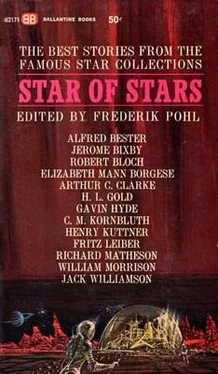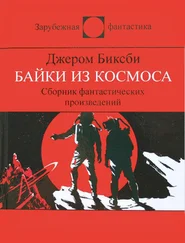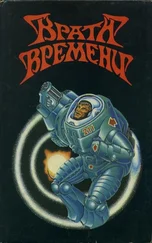Mary Sipich was a small, cheerful woman in a simple dress. She immediately set about helping Mom and Aunt Amy put the finishing touches on the dinner.
The next arrivals were the Smiths and the Dunns, who lived right next to each other down the road, only a few yards from the nothingness. They drove up in the Smiths’ wagon, drawn by their old horse.
Then the Reillys showed up, from across the darkened wheat-field, and the evening really began. Pat Reilly sat down at the big upright in the front room and began to play from the popular sheet music on the rack. He played softly, as expressively as he could—and nobody sang. Anthony liked piano playing a whole lot, but not singing; often he would come up from the basement, or down from the attic, or just come, and sit on top of the piano, nodding his head as Pat played “Lover” or “Boulevard of Broken Dreams” or “Night and Day.” He seemed to prefer ballads, sweet-sounding songs—but the one time somebody had started to sing, Anthony had looked over from the top of the piano and done something that made everybody afraid of singing from then on. Later they’d decided that the piano was what Anthony had heard first, before anybody had ever tried to sing, and now anything else added to it didn’t sound right and distracted him from his pleasure.
So every television night Pat would play the piano, and that was the beginning of the evening. Wherever Anthony was, the music would make him happy and put him in a good mood, and he would know that they were gathering for television and waiting for him.
By eight-thirty everybody had shown up, except for the seventeen children and Mrs. Soames, who was off watching them in the schoolhouse at the far end of town. The children of Peaksville were never, never allowed near the Fremont house—not since little Fred Smith had tried to play with Anthony on a dare. The younger children weren’t even told about Anthony. The others had mostly forgotten about him, or were told that he was a nice, nice goblin but they must never go near him.
Dan and Ethel Hollis came late, and Dan walked in not suspecting a thing. Pat Reilly had played the piano until his hands ached—he’d worked pretty hard with them today--and now he got up, and everybody gathered around to wish Dan Hollis a happy birthday.
“Well, I’ll be darned,” Dan grinned. “This is swell. I wasn’t expecting this at all . . . gosh, this is swell!”
They gave him his presents mostly things they had made by hand, though some were things that people had possessed as their own and now gave him as his. John Sipich gave him a watch charm, hand-carved out of a piece of hickory wood. Dan’s watch had broken down a year or so ago, and there was nobody in the village who knew how to fix it, but he still carried it around because it had been his grandfather’s and was a fine old heavy thing of gold and silver. He attached the charm to the chain while everybody laughed and said John had done a nice job of carving. Then Mary Sipich gave him a knitted necktie, which he put on, removing the one he’d worn.
The Reillys gave him a little box they had made, to keep things in. They didn’t say what things, but Dan said he’d keep his personal jewelry in it. The Reillys had made it out of a cigar box, carefully peeled of its paper and lined on the inside with velvet. The outside had been polished, and carefully if not expertly carved by Pat—but his carving got complimented, too. Dan Hollis received many other gifts—a pipe, a pair of shoelaces, a tiepin, a knit pair of socks, some fudge, a pair of garters made from old suspenders.
He unwrapped each gift with vast pleasure and wore as many of them as he could right there, even the garters. He lit up the pipe and said he’d never had a better smoke. Which wasn’t quite true, because the pipe wasn’t broken in yet; Pete Manners had had it lying around ever since he’d received it as a gift four years ago from an out-of-town relative who hadn’t known he’d stopped smoking.
Dan put the tobacco into the bowl very carefully. Tobacco was precious. It was only pure luck that Pat Reilly had decided to try to grow some in his back yard just before what had happened to Peaksville had happened. It didn’t grow very well, and then they had to cure it and shred it and all, and it was just precious stuff. Everybody in town used wooden holders old McIntyre had made, to save on butts.
Last of all, Thelma Dunn gave Dan Hollis the record she had found.
Dan’s eyes misted even before he opened the package. He knew it was a record.
“Gosh,” he said softly. “What one is it? I’m almost afraid to look . . .“
“You haven’t got it, darling,” Ethel Hollis smiled. “Don’t you remember, I asked about ‘You Are My Sunshine’?”
“Oh, gosh,” Dan said again. Carefully he removed the wrapping and stood there fondling the record, running his big hands over the worn grooves with their tiny, dulling crosswise scratches. He looked around the room, eyes shining, and they all smiled back, knowing how delighted he was.
“Happy birthday, darling!” Ethel said, throwing her arms around him and kissing him.
He clutched the record in both hands, holding it off to one side as she pressed against him. “Hey,” he laughed, pulling back his head. “Be careful—I’m holding a priceless object!” He looked around again, over his wife’s arms, which were still around his neck. His eyes were hungry. “Look . . . do you think we could play it? Lord, what I’d give to hear some new music. Just the first part, the orchestra part, before Como sings?”
Faces sobered. After a minute, John Sipich said, “I don’t think we’d better, Dan. After all, we don’t know just where the singer comes in—it’d be taking too much of a chance. Better wait till you get home.”
Dan Hollis reluctantly put the record on the buffet with all his other presents. “It’s good,” he said automatically, but disappointedly, “that I can’t play it here.”
“Oh, yes,” said Sipich. “It’s good.” To compensate for Dan’s disappointed tone, he repeated, “It’s good.”
They ate dinner, the candles lighting their smiling faces, and ate it all right down to the last delicious drop of gravy. They complimented Mom and Aunt Amy on the roast beef, and the peas and carrots, and the tender corn on the cob. The corn hadn’t come from the Fremonts’ cornfield, naturally—everybody knew what was out there, and the field was going to weeds. Then they polished off the dessert—homemade ice cream and cookies. And then they sat back, in the flickering light of the candles, and chatted, waiting for television.
There never was a lot of mumbling on television night; everybody came and had a good dinner at the Fremonts’, and that was nice, and afterward there was television, and nobody really thought much about that—it just had to be put up with. So it was a pleasant enough get-together, aside from your having to watch what you said just as carefully as you always did everyplace. If a dangerous thought came into your mind, you just started mumbling, even right in the middle of a sentence. When you did that, the others just ignored you until you felt happier again and stopped.
Anthony liked television night. He had done only two or three awful things on television night in the whole past year.
Mom had put a bottle of brandy on the table, and they each had a tiny glass of it. Liquor was even more precious than tobacco. The villagers could make wine, but the grapes weren’t right, and certainly the techniques weren’t, and it wasn’t very good wine. There were only a few bottles of real liquor left in the village— four rye, three Scotch, three brandy, nine real wine and half a bottle of Drambuie belonging to old McIntyre (only for marriages)—and when those were gone, that was it.
Читать дальше


![Джером Биксби - Забытые имена [антология]](/books/26262/dzherom-biksbi-zabytye-imena-antologiya-thumb.webp)
![Джером Биксби - На суше и на море [1970]](/books/26417/dzherom-biksbi-na-sushe-i-na-more-1970-thumb.webp)


![Джером Биксби - Врата времени [Сборник англо-американской фантастики]](/books/419866/dzherom-biksbi-vrata-vremeni-sbornik-anglo-thumb.webp)
